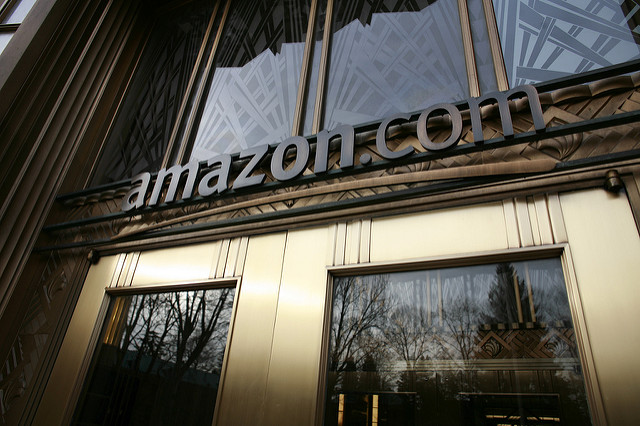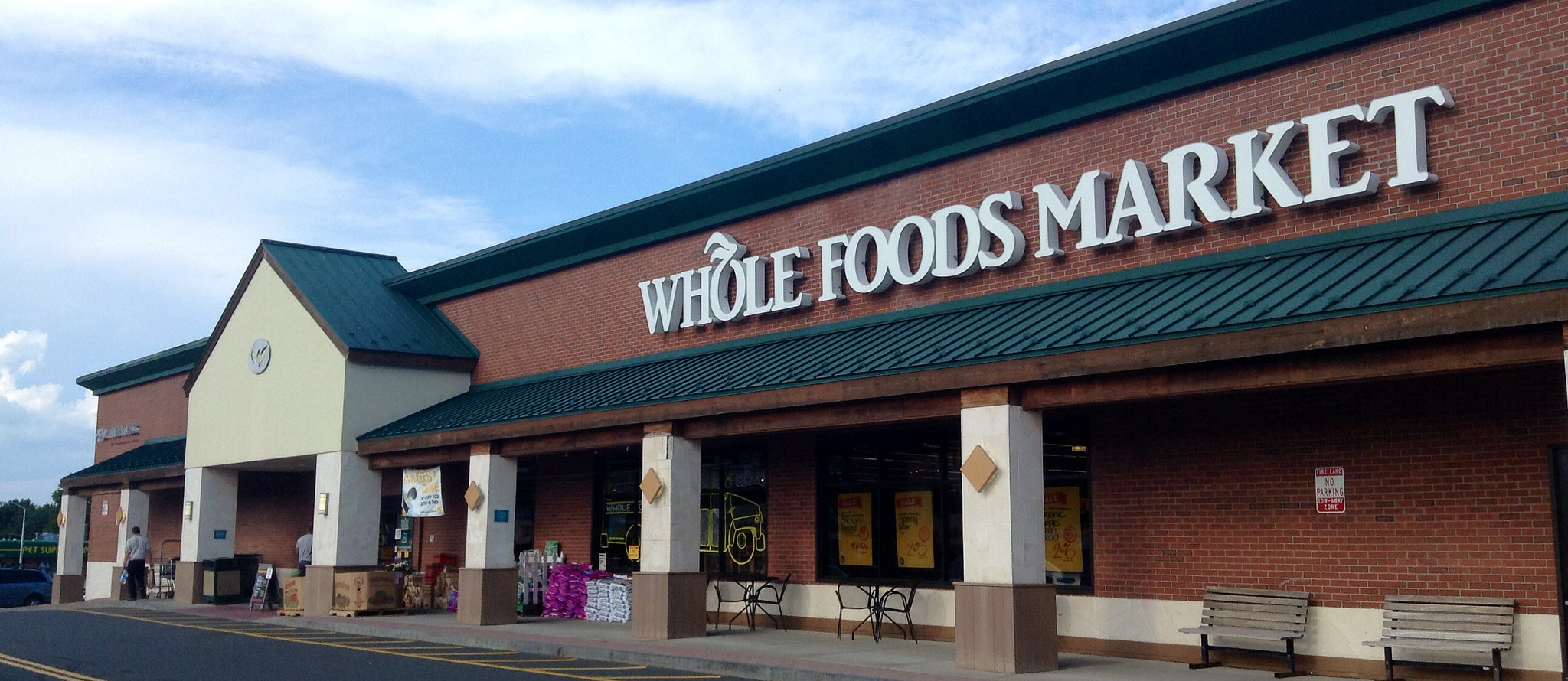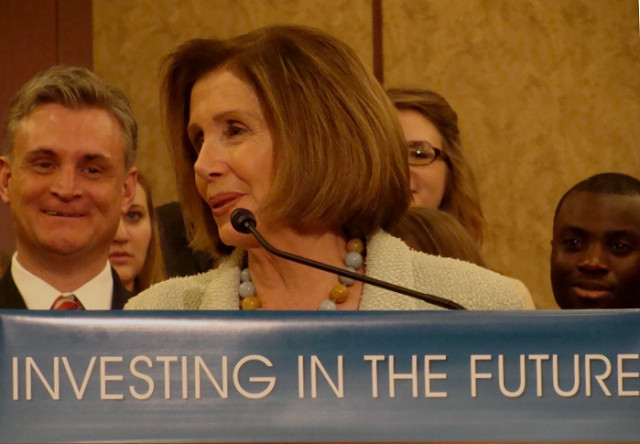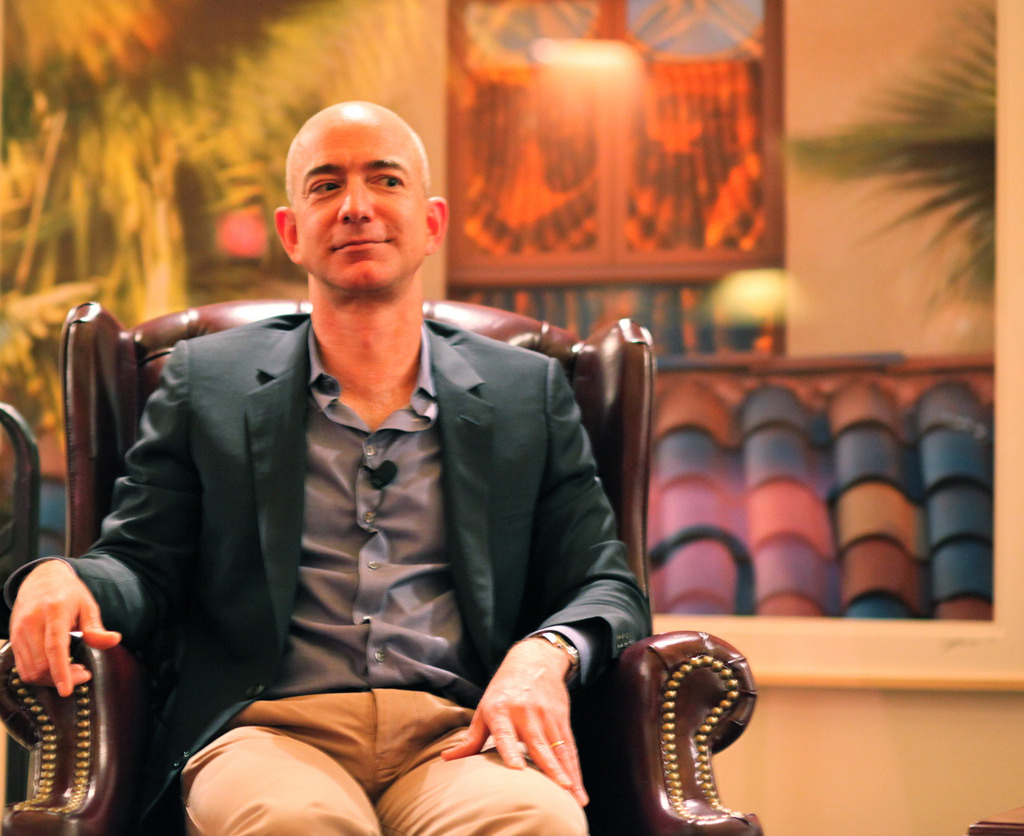How do you solve a problem like Amazon?
By:
Amazon and the suppliers using its platform account for a massive amount of U.S. online sales, up to one-third by some estimates. Now it's promising—threatening, some might say—to get into the brick-and-mortar retail business.
 Robert Scoble - flickr.com
Robert Scoble - flickr.com
In the wake of the recent and surprising announcement of Amazon’s $13.7 billion deal to buy Whole Foods Market, Amazon’s critics and some members of Congress are asking whether the company is becoming too massive, and whether anything can be done about it.
While consumers enjoy the convenience and low prices that Amazon's massiveness provides, its vast network of suppliers have long complained about being squeezed. The company has also been accused of decimating book sellers in part through aggressive price cutting.
ATTN: consulted two experts in antitrust law, Doug Melamed, a professor of law at Stanford University, and Christopher Sagers, a professor at Cleveland State University Law School, about whether the company has become too big to fail and too strong to stop.
Is the proposed Whole Foods acquisition a tipping point that will make the Federal government take a closer look at Amazon’s practices?
 Flickr - flickr.com
Flickr - flickr.com
Doug Melamed: That acquisition, because it is so visible and large, brought attention to Amazon. I don’t think the Whole Foods deal creates much of an antitrust problem, but it does cause people to ask if Amazon, and others like Facebook and Google, have they gotten too big.
Christopher Sagers: Usually companies are challenged on horizontal mergers, that is, mergers between two competitors. Amazon and Whole Foods have a tiny bit of overlap in online grocery delivery. And the grocery business is very competitive, so even if this were a horizontal acquisition, I doubt that it would result in a serious antitrust challenge.
Could the case be made that Amazon’s rapid growth signals a problem for consumers down the road?
CS: The public is mainly concerned that other retailers will go out of business, and it isn’t just Amazon. Before that it was Walmart. People were worried that it was destroying small town retailers. Amazon has most visibly killed off bookstores, but I don’t think that’s all Amazon’s fault. There is a theory that Amazon has been charging super low prices as a goal to secure market share and then charge monopoly prices later. But that wouldn’t make sense as a long-term strategy. It’s a very expensive way to get big. It’s more plausible that Amazon, by making itself indispensable to consumers, is also making it indispensable to its suppliers, and the suppliers can be screwed because they don't have a lot of choices. That’s already happening.
If some suppliers are feeling squeezed by Amazon’s practices, would the Feds consider that a problem?
DM: Companies may be motivated to bring their own antitrust lawsuits. But if the problem is that Amazon is so big that [suppliers] need to deal with Amazon and therefore Amazon has the upper hand in the terms, then that’s not an antitrust problem under the law going back at least 70 years. If Amazon became powerful because of a merger where they had the ability to exercise market power on the buy side against suppliers, that would provide the basis for an antitrust case.
CS: You hear about monopolies, based on a company raising prices to its consumers. But there’s the concept of monopsony, where you’re the only buyer in a given market and that hurts suppliers by forcing their wholesale prices down. That is illegal under the Sherman Act, but it’s rare to see lawsuits based on that in the U.S.
DM: The larger issue is: are we talking about the creation of market power that’s likely to be used to the detriment of consumers? Or are we talking about a company that has become so successful because it has built a better mousetrap? Antitrust laws are not suited to go after bigness that is created by being more efficient. There may be political issues or wealth distribution issues, but those aren’t antitrust issues.
Can the antitrust laws be changed or tweaked to deal with huge online companies that didn’t exist when the Sherman act was being drafted?
DM: Clearly there are people saying this, and if you see the Democrats with their "Better Deal" proposal they were explicit about antitrust laws. I don’t think in the near future this will have any traction. The courts are not going to be leaders, they’re going to be case by case and they’re fairly conservative about antitrust. And the current administration isn’t likely to pursue this.
Democrats have promised more aggressive review of mergers and the creation of a “consumer competition advocate,” which sounds like a modern trustbuster. Are these plans viable?
 Nancy Pelosi - flickr.com
Nancy Pelosi - flickr.com
DM: In tougher merger review, there are scholars and politicians who have been saying merger enforcement has been a little too lax and they’ve been approving mergers that shouldn’t have been. The Democrats could push for incrementally more aggressive merger review.
On the larger point about going after bigness, here’s the problem. Nobody likes to deal with a monopoly. We all complain about Comcast. But how do you write a rule that’s enforceable by the government with checks by the court? What standards do you write to let them compete aggressively and reap the fruits of that success, and on the other hand say that if the company does only that then it’s too big and we have to do something about it? How do you turn that into an operational rule that doesn't throw out the baby with the bathwater?
Any predictions about the future regarding Amazon?
 Flickr - flickr.com
Flickr - flickr.com
CS: In the next ten years it is possible that there will be a federal lawsuit against Amazon or another online platform and it would look like the successful one against Microsoft in the late 90s, claiming they had acquired a monopoly in an operating system. But the government had to find specific Microsoft conduct to make its case.
DM: The Microsoft case is a prime example where it reduced or weakened competition and didn’t benefit consumers. If any of these companies—Amazon, Google, Facebook—did that, then there would be a good case for an antitrust suit. There’s a good chance of antitrust cases and some may be successful, but they would be on particular kinds of conduct or transactions, but I don’t think anything is going to bust it up.
